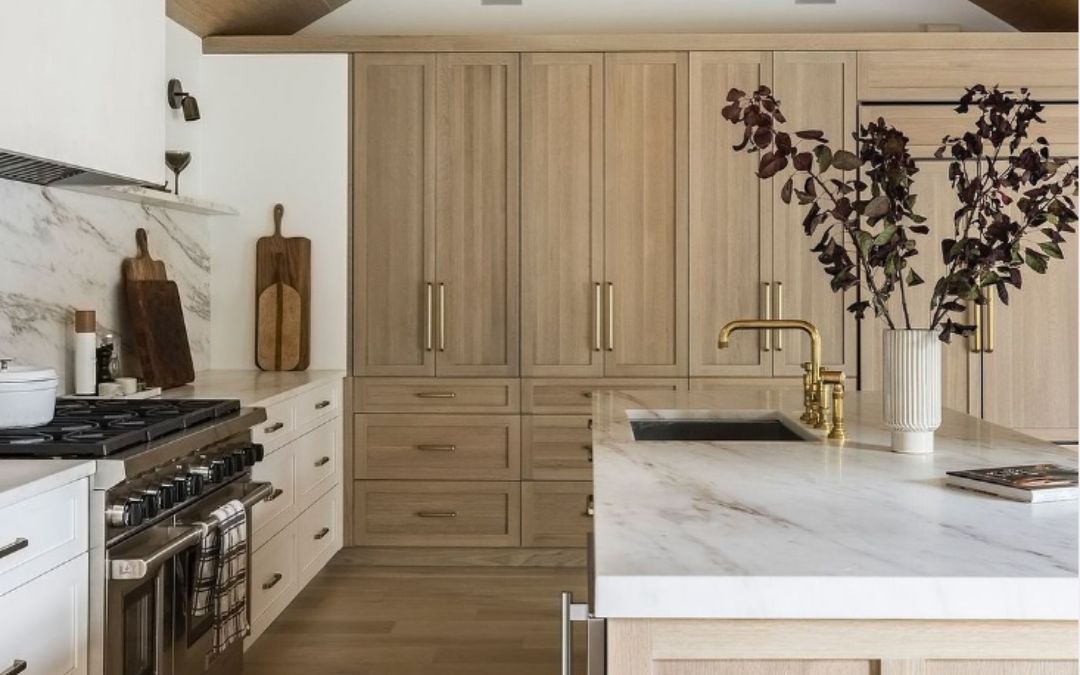
2024 Flooring Trends-White Oak
Why Prefinished White Oak Engineered Flooring is Taking Center Stage
Homeowners and designers alike are constantly seeking the perfect balance of style, durability, and value when it comes to flooring. In 2024, one clear trend is emerging: the rise of prefinished engineered hardwood flooring, particularly in the ever-popular white oak. Let’s explore why this flooring option is making waves and what makes it a compelling choice for your home.
The Allure of White Oak
White oak has long been a staple in the flooring world for its natural beauty and versatility. Its light, neutral tones create a bright and airy feel, while its subtle grain patterns add warmth and texture. The wood’s versatility allows it to complement a wide range of interior styles, from modern farmhouses to contemporary chic.
Engineered Hardwood: The Modern Choice
Engineered hardwood flooring is constructed with a top layer of real hardwood veneer bonded to a core of multiple layers of plywood. This construction offers several advantages over traditional solid hardwood:
- Stability: Engineered wood is less prone to expansion and contraction with changes in humidity and temperature, making it a more stable choice for various climates and installation methods.
- Versatility: It can be installed in areas where solid hardwood might be problematic, such as basements or over concrete slabs.
- Value: While high-quality engineered hardwood can rival the cost of solid wood, many options offer a more budget-friendly alternative without sacrificing style or durability.
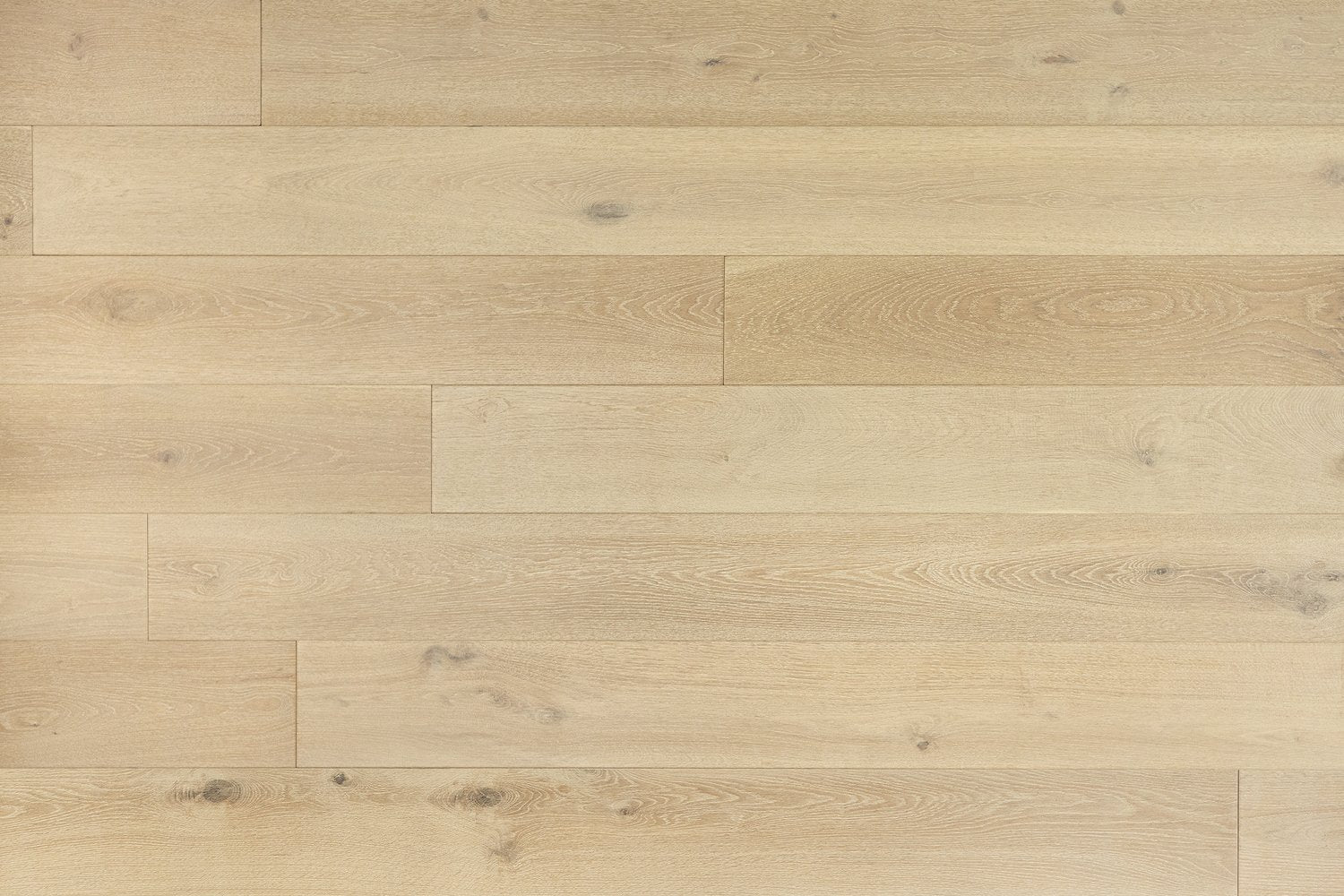
The Prefinished Advantage
Prefinished engineered hardwood flooring takes convenience to the next level. The planks come pre-sanded and pre-finished with a protective coating, eliminating the need for on-site finishing. This saves time and money during installation and reduces the disruption to your home.
2024 Trends: White Oak’s Variations
White oak’s versatility extends beyond its natural hue. Several finishes and treatments are trending in 2024, offering a variety of looks to suit your taste:
-
Whitewashed or Bleached:
These finishes lighten the wood even further, creating an airy, Scandinavian-inspired aesthetic.
-
Wire-Brushed:
This technique enhances the natural grain texture, adding depth and dimension to the floor.
-
Smoked or Fumed:
Darkening the wood with ammonia fumes creates a rich, brown hue with a hint of warmth.
-
Matte Finishes:
Matte finishes are gaining popularity for their understated elegance and ability to hide scratches and wear better than high-gloss options.
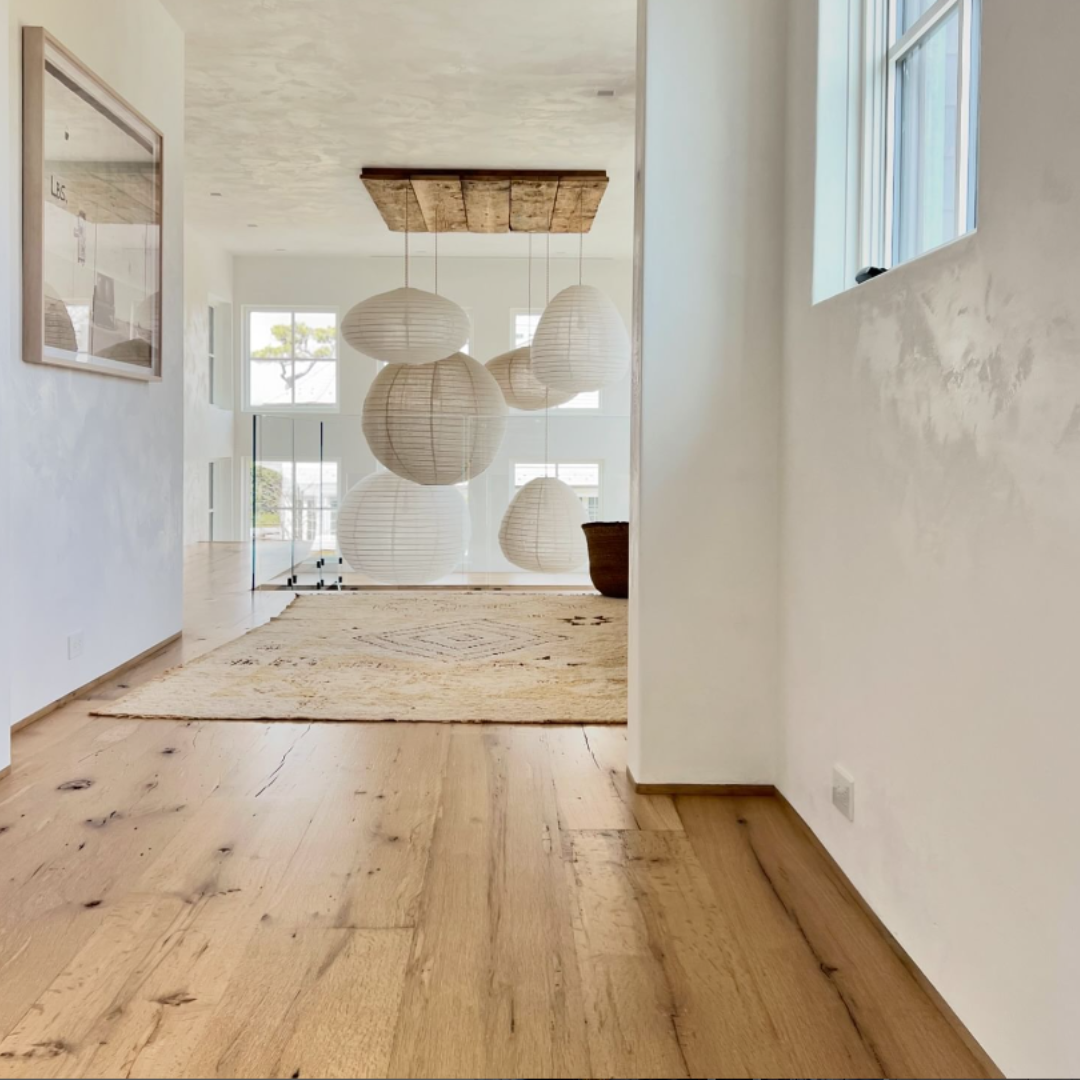
Durability and Maintenance
One of the most appealing aspects of prefinished engineered white oak flooring is its durability. The protective topcoat resists scratches, dents, and stains, making it a great choice for high-traffic areas. Regular sweeping and occasional damp mopping are usually all that’s needed to keep your floors looking their best.
Why Choose ZIBA Hardwoods for Your Prefinished White Oak Flooring?
ZIBA Hardwoods is your trusted partner in Connecticut for all your flooring needs. We offer a wide selection of premium prefinished engineered white oak flooring, sourced from sustainable forests and crafted with meticulous attention to detail. Our experienced team can guide you through the selection process, helping you find the perfect finish and style to match your vision. We pride ourselves on exceptional customer service and expert installation, ensuring your floors look beautiful and last for years to come.
Choosing Your Perfect Floor
When selecting prefinished engineered white oak flooring, consider the following factors:
-
Finish:
Choose a finish that complements your overall design style.
-
Thickness of the Wear Layer:
A thicker wear layer means you can refinish the floors multiple times over their lifetime.
With its stunning appearance, durability, and variety of finishes, prefinished engineered white oak flooring is a clear frontrunner in the 2024 flooring trends. It’s a versatile choice that can elevate any space, offering both beauty and longevity. Whether you’re building a new home or renovating an existing one, consider prefinished engineered white oak for a flooring solution that will stand the test of time. Trust ZIBA Hardwoods to help you find the perfect floor for your Connecticut home.
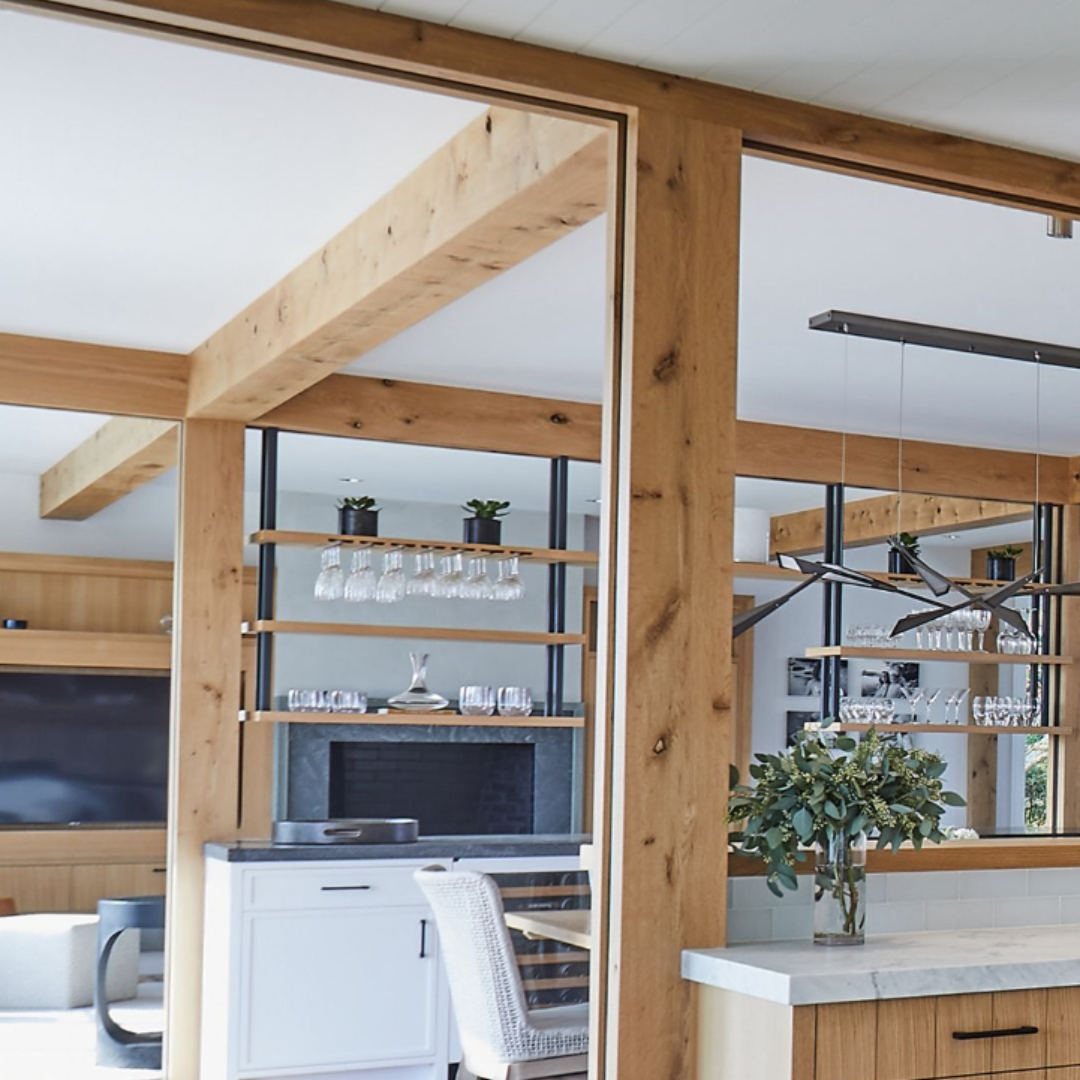
FAQ's About White Oak
What is white oak-engineered hardwood flooring?
White oak engineered hardwood is a type of flooring that consists of a real white oak veneer layer on top, bonded to a core of multiple layers of plywood. This construction makes it more stable and versatile than solid hardwood.
What are the benefits of white oak-engineered hardwood over solid hardwood?
Engineered hardwood offers several advantages over solid hardwood, including:
- Increased stability in varying humidity levels.
- Suitability for installation in basements and over concrete subfloors.
- Often a more budget-friendly option compared to solid hardwood.
Is white oak-engineered hardwood durable?
Yes, white oak-engineered hardwood is known for its durability. The top layer of real white oak is naturally resistant to wear and tear, and the engineered construction adds stability to prevent warping and cracking.
Can I refinish white oak engineered hardwood floors?
Yes, most white oak-engineered hardwood floors can be refinished multiple times, depending on the thickness of the top veneer layer. However, it’s important to consult with a flooring professional to determine the specific refinishing options for your floor.
How do I care for and maintain white oak-engineered hardwood floors?
Regular sweeping or vacuuming to remove dirt and debris is recommended. For spills or sticky messes, use a slightly damp mop with a wood-friendly cleaner. Avoid excessive water, as it can damage the wood.
Is white oak-engineered hardwood suitable for all rooms in my home?
Yes, due to its stability, white oak-engineered hardwood can be installed in most rooms of your home, including kitchens, living rooms, bedrooms, and even basements with proper moisture control.
What are the different finishes available for white oak engineered hardwood?
White oak engineered hardwood comes in various finishes, including:
- Natural: Showcases the wood’s natural color and grain.
- Whitewashed or Bleached: Creates a lighter, airier look.
- Wire-Brushed: Enhances the wood’s natural texture.
- Smoked or Fumed: Darkens the wood for a richer tone.
- Matte: Offers a subtle, low-gloss finish.
How much does white oak-engineered hardwood flooring cost?
The cost varies depending on factors such as the thickness of the wear layer, finish, grade, and cut. Generally, expect to pay between $15-$20/SF for material.
Is white oak-engineered hardwood eco-friendly?
The majority of our white oak lumber is sourced from private landowners throughout the Northern Appalachian region where trees are sustainably harvested through a selective process. In many cases, our lumber meets FSC standards and certification.
What’s the difference between prefinished and unfinished white oak engineered hardwood?
Prefinished engineered hardwood comes with the stain and protective coating already applied, while unfinished requires sanding and finishing after installation. Prefinished is a more convenient and time-saving option.

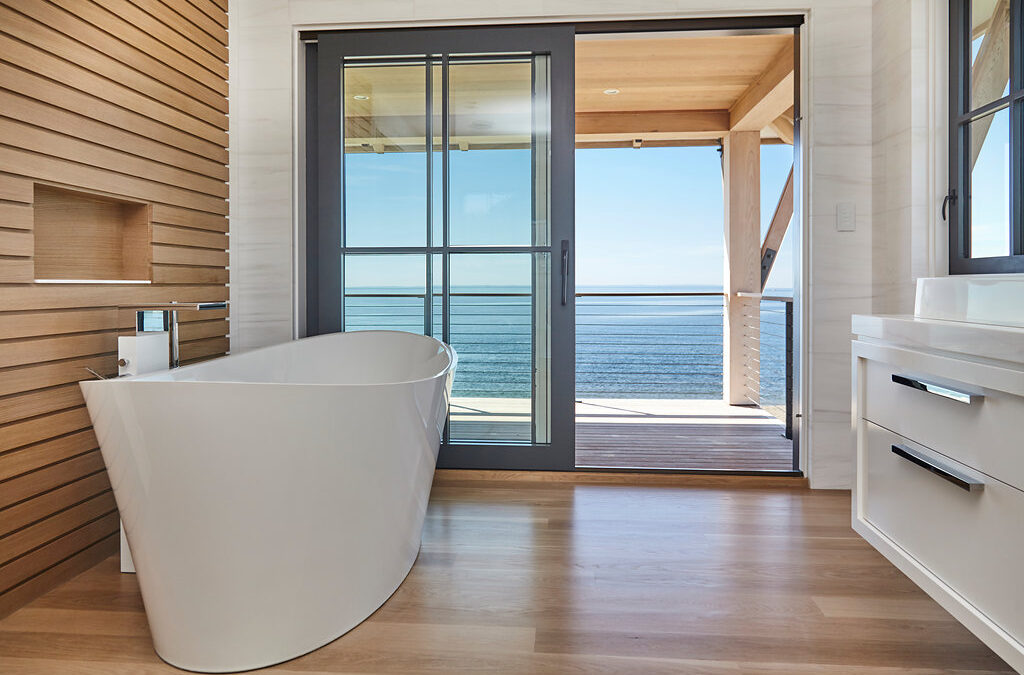
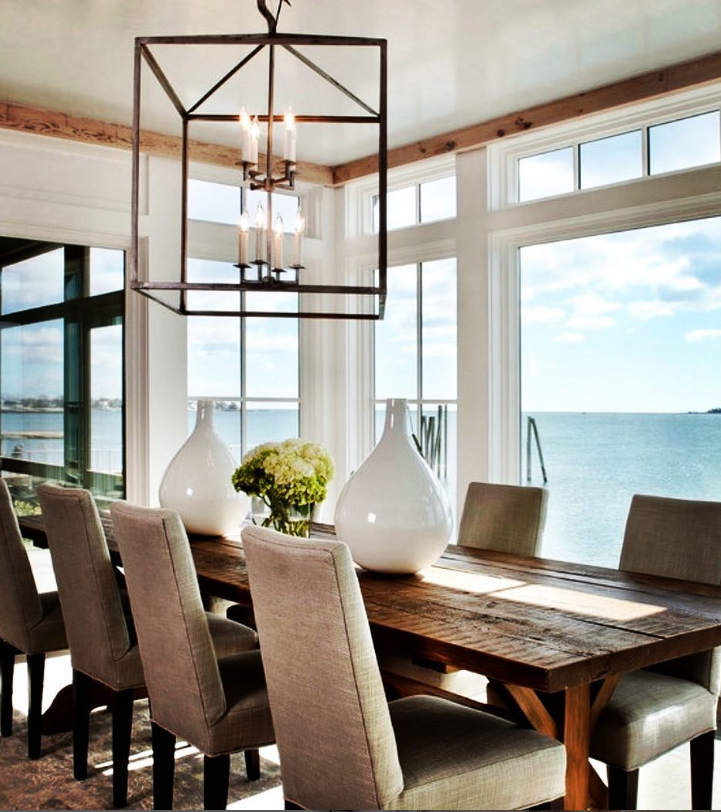
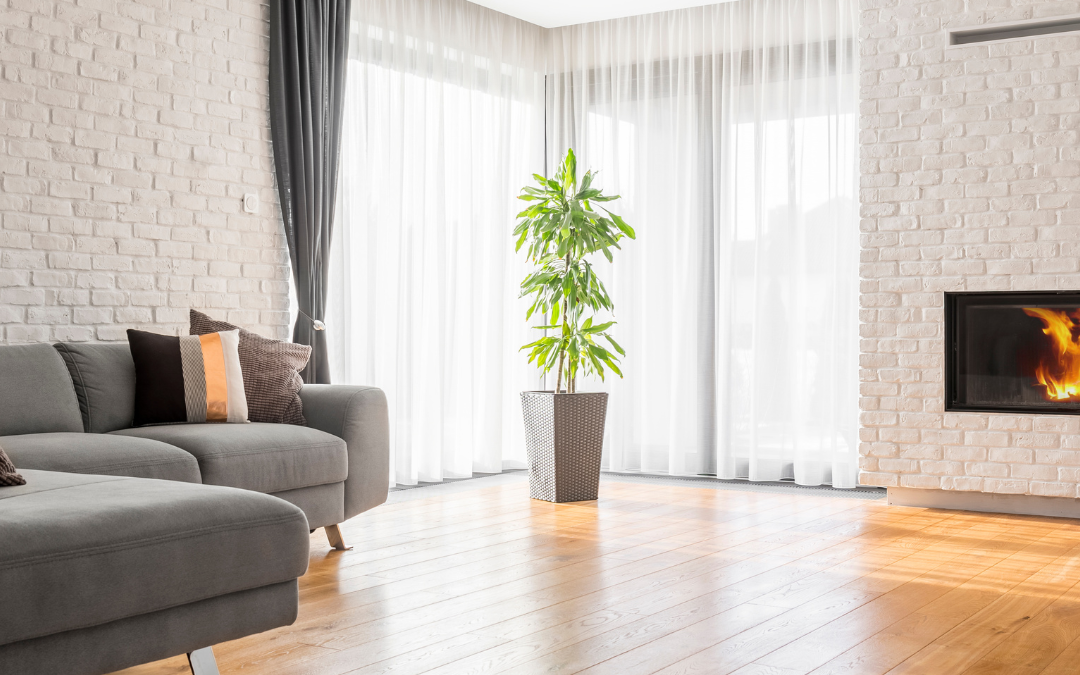
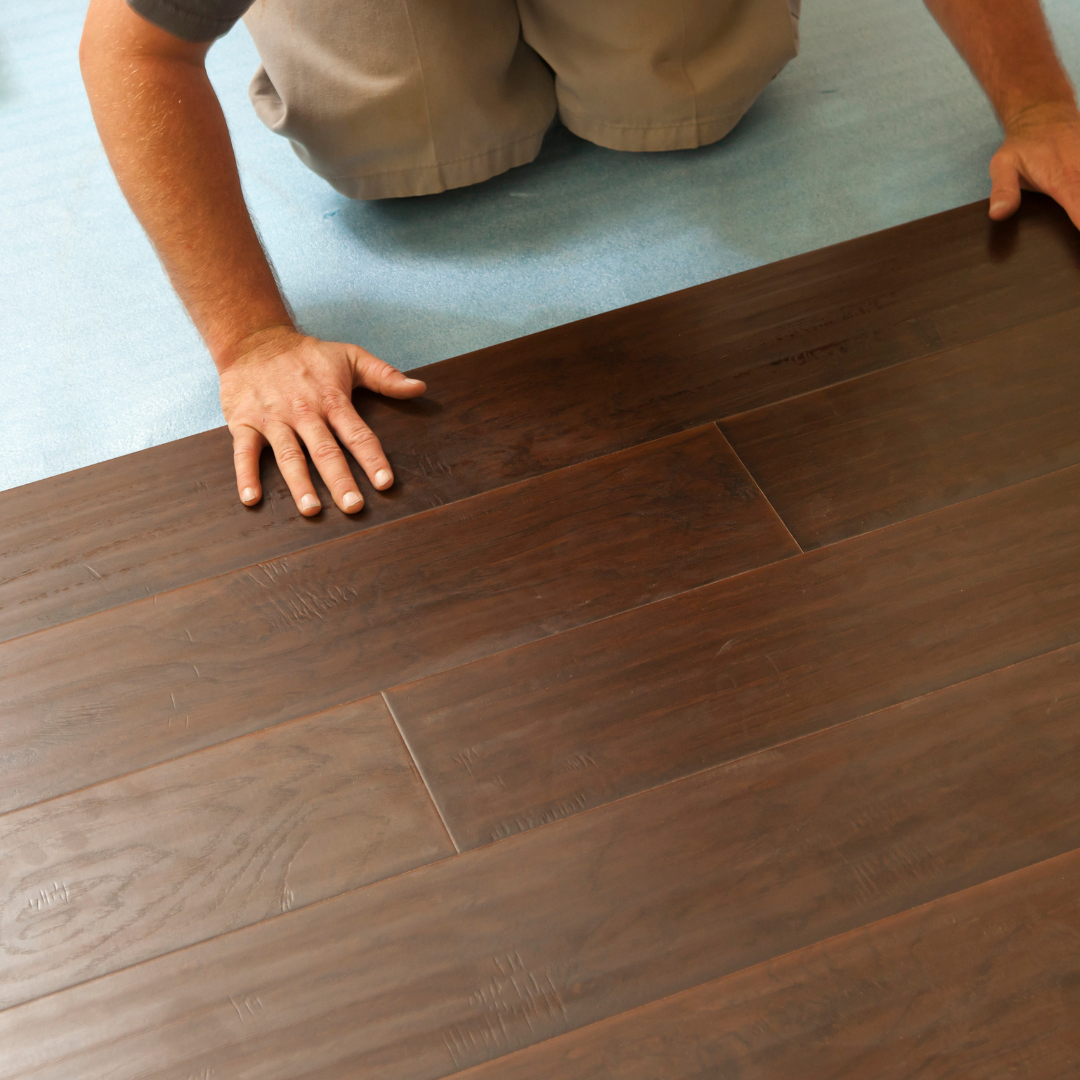
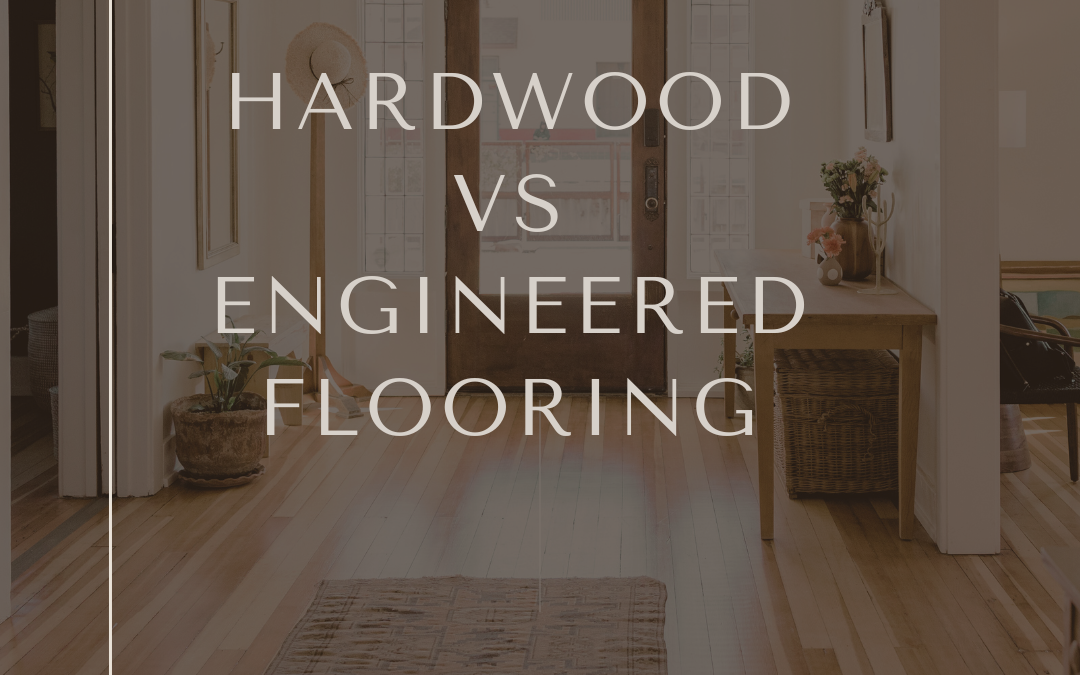
Recent Comments